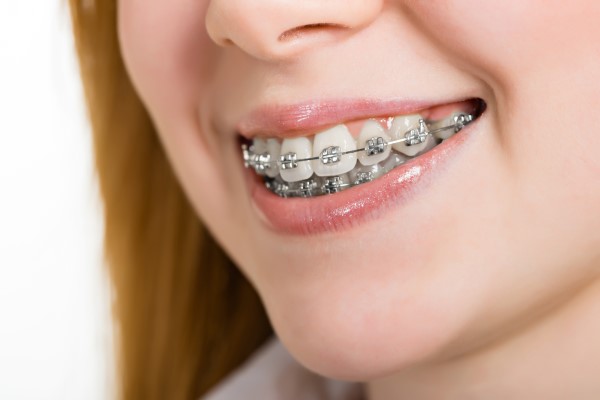A Top Orthodontist Explains Phase 1 Orthodontics

Early orthodontic treatment from a top orthodontist may prevent worsening oral health issues later in life. However, while most parents have heard of traditional orthodontics, some may not know what to expect from early orthodontic care. While both treatments seek to alleviate symptoms and restore health, their respective goals and methods vary somewhat.
Phase one, often known as early orthodontic therapy, consists of preventative, interceptive, and orthopedic care for developing teeth and jaws. Understanding how the first stage works is essential to anticipate what will happen during the process. This information might be useful for parents considering starting orthodontic treatment for their kids.
Phase 1 Orthodontics Explained
Phase one orthodontic treatment usually begins between the ages of six and eight, or when all of a child's baby teeth have erupted. In the first stage of therapy, the dentist will focus on assessing any oral health issues before they progress into more significant concerns. The following are some dental problems addressed by the first stage of orthodontic treatment for children.
- Protruding teeth
- Breathing issues
- Speech problems
- Uneven spacing or crowding of the teeth
- An imbalance between the jaw and the rest of the head
- Permanent teeth impacted by baby teeth
- Oral habits like thumb sucking that contribute to dental misalignment
Consulting a dentist is highly recommended if a child exhibits any of the symptoms above. The goal is to give the child a healthy mouth and a lovely smile.
Phase 1 Treatment: What to Expect
Phase 1 orthodontic treatment begins with an assessment and evaluation at the dental office to ascertain the need for early intervention. Parents can then schedule a consultation for Phase 1 therapy if their child is about seven years old. During the consultation, your child's teeth will be photographed and digitally x-rayed. Then, a top orthodontist will examine the young patient's mouth and explain how Phase 1 therapy with palatal expansion might help your child.
The dentist will take a mold or imprint of their upper and lower arch to make a palate expander device that works for the child's mouth. After taking an impression, the dentist professional will position spacers between the upper back teeth to make room for the metal band. The metal bands keep the appliance intact. The child's appliance will be ready for fitting at the next appointment visit after about a week.
The expansion begins once the dentist glues the appliance to the patient's upper back molars and activates the expansion device. It may take a few days for the child to adjust to the new fixed appliance, but they should not feel any pain or discomfort. Scheduled check-ins will allow the dentist to track the child's development and ensure the device functions properly.
Sometimes the palatal expanders can loosen. In case of damage or loosening, patients can return to the office for repairs. If any device component breaks off in the mouth, please keep it safe until the scheduled repair appointment. Parents can put wax on anything that could be poking or aggravating the child's mouth.
The child will wear the palatal expander for a minimum of six months and up to a year. The dentist may then recommend placing four brackets on the upper front teeth if the kid has an open bite or if their front teeth protrude significantly. These brackets will progressively and gently direct the four upper teeth downward into a position where they are less likely to get dislodged or chipped.
The Benefits of Phase 1 Orthodontics
Children with bite, crowding, or jaw function problems may benefit greatly from early orthodontic treatment. The advantages include a decreased possibility of needing long-term treatment from a conventional orthodontist, a lowered risk of gum disease or cavities, a correctly formed jaw that promotes facial symmetry, and a decreased risk of injury from a projecting tooth. Early orthodontic treatment might affect different children, depending on their needs.
Orthodontic treatment need not begin at a young age. But orthodontists strongly advise it to benefit the mouth's overall health and growth. Since early orthodontic treatment starts at a very young age and the whole procedure may be rather extensive, many parents are apprehensive about subjecting their kids to it. It is vital to remember, however, that treatment will result in nothing but improved dental health and long-term benefits.
Book an appointment
Talking to a top orthodontist in person is your best bet for learning about the first step of early orthodontic therapy and what it includes. They can perform an evaluation that will help identify the best next steps. During the meeting, we will also answer any questions or address any concerns you may have. Get in touch immediately if you have questions or want to schedule an appointment.
Request an appointment here: https://nettsmiles.com or call Nett Pediatric Dentistry & Orthodontics at (623) 759-7658 for an appointment in our Phoenix office.
Check out what others are saying about our dental services on Yelp: Orthodontist in Phoenix, AZ.
Recent Posts
Pediatric dentistry is a vital part of a child's healthcare team. They are responsible for the oral health of babies, children, and adolescents. A pediatric dentist has the education and experience to care for a child's unique dental needs. In addition, they can provide preventive care, diagnosis, and treatment of various dental problems.Parents need to…
Pediatric dentistry works with parents and children to keep gums and teeth healthy. Brushing daily may be an important part of oral care, but it is not enough. Flossing must be a habit in kids as well. If you want to know more about the importance of daily flossing, here are the details straight from…
When scheduling a child's first dental appointment, you should consider visiting the pediatric dentistry office. Dentists who specialize in pediatric dentistry acquire additional training beyond the universal requirements of dentistry school to meet the unique needs of their young patients. A parent's decision to establish with a particular provider may be influenced by their knowledge…
Your child's teeth will develop and change as they age. Likewise, the kind of dental care they need will change over time. The adult teeth may not develop properly without proper oral care, leading to gum disease and decay problems. Talking to a pediatric dentistry professional and asking the appropriate questions may help better care…


